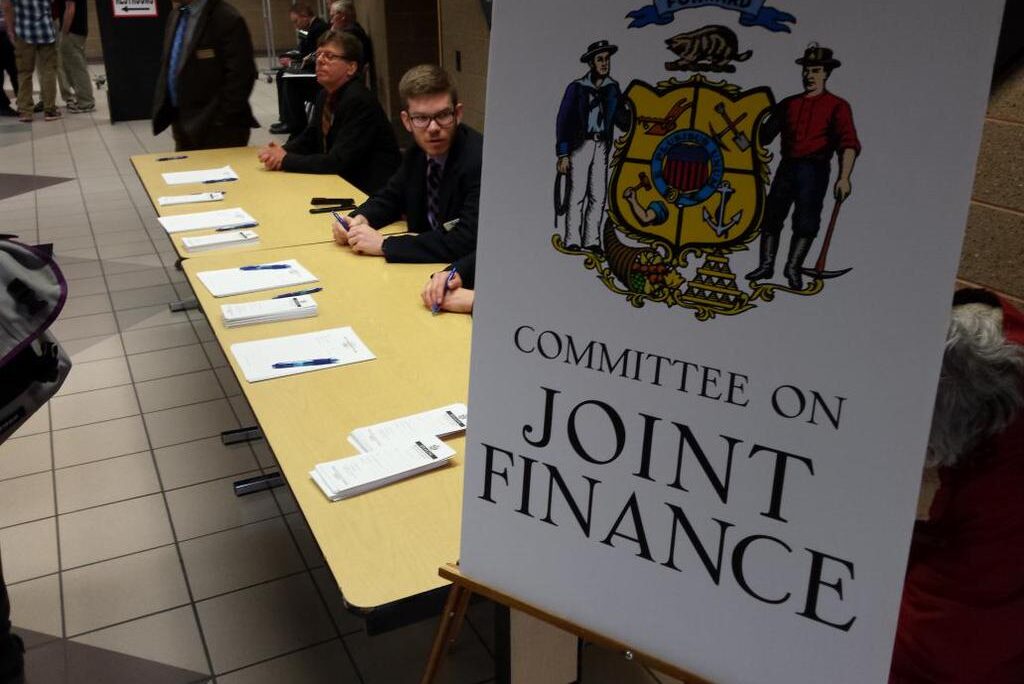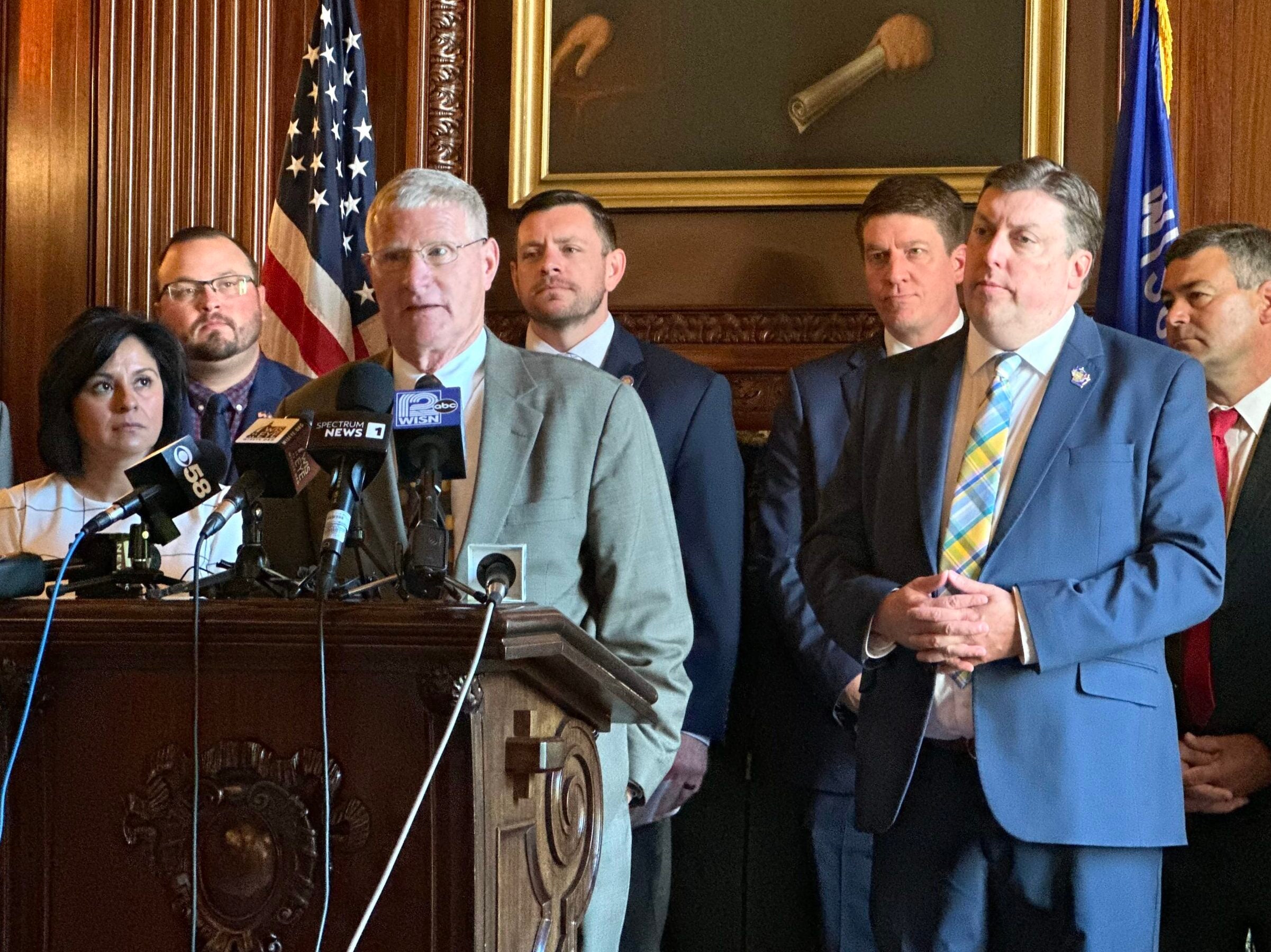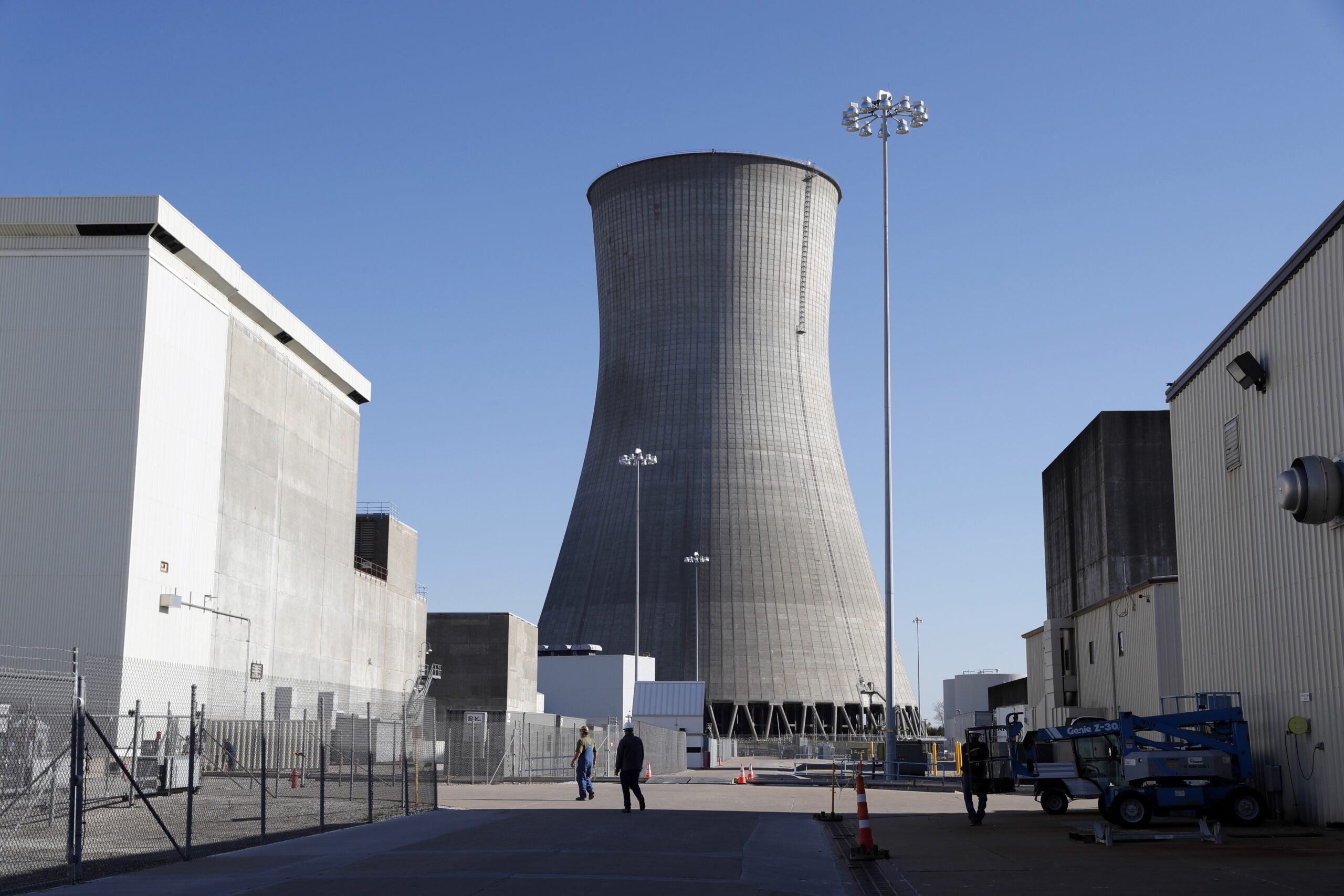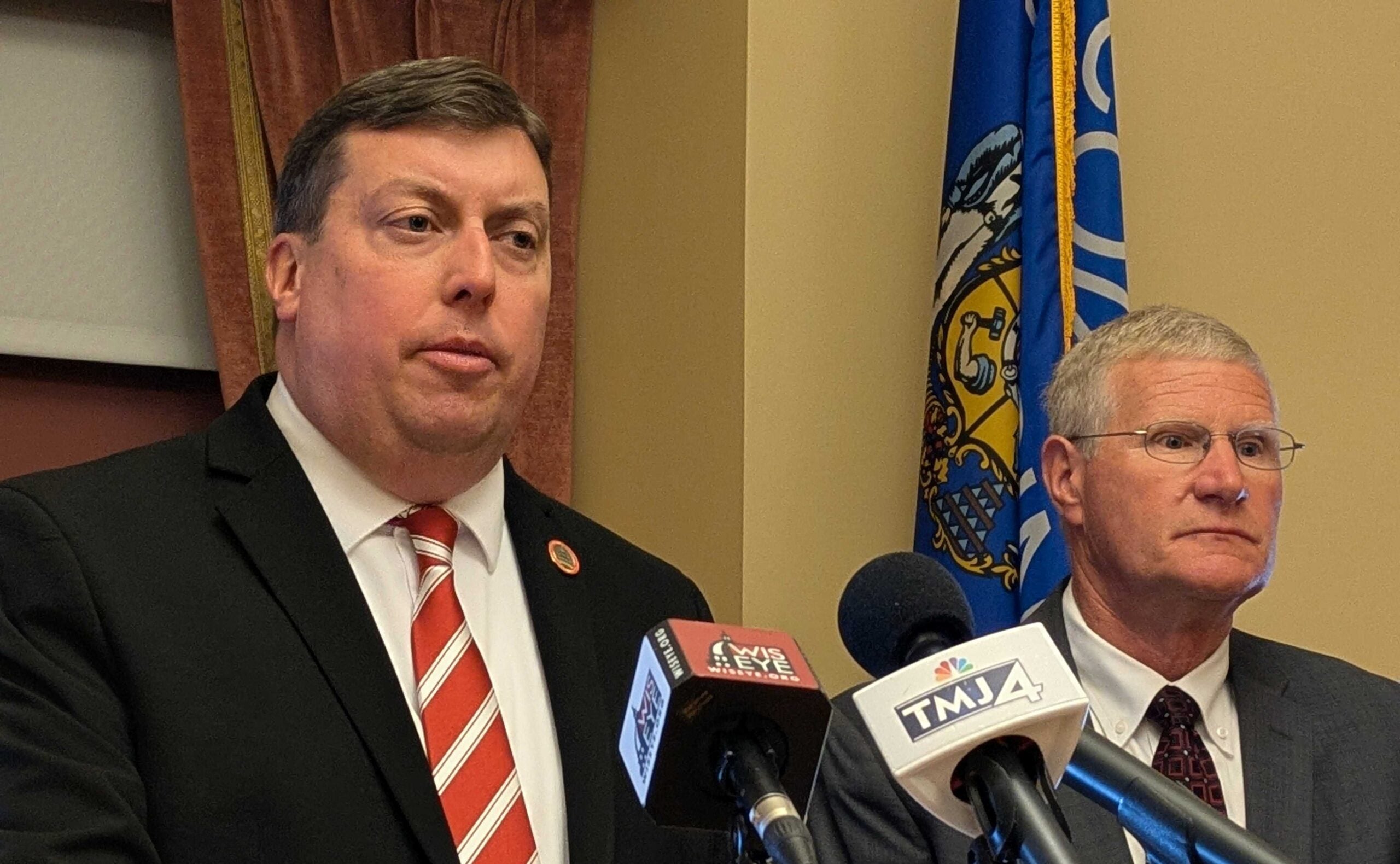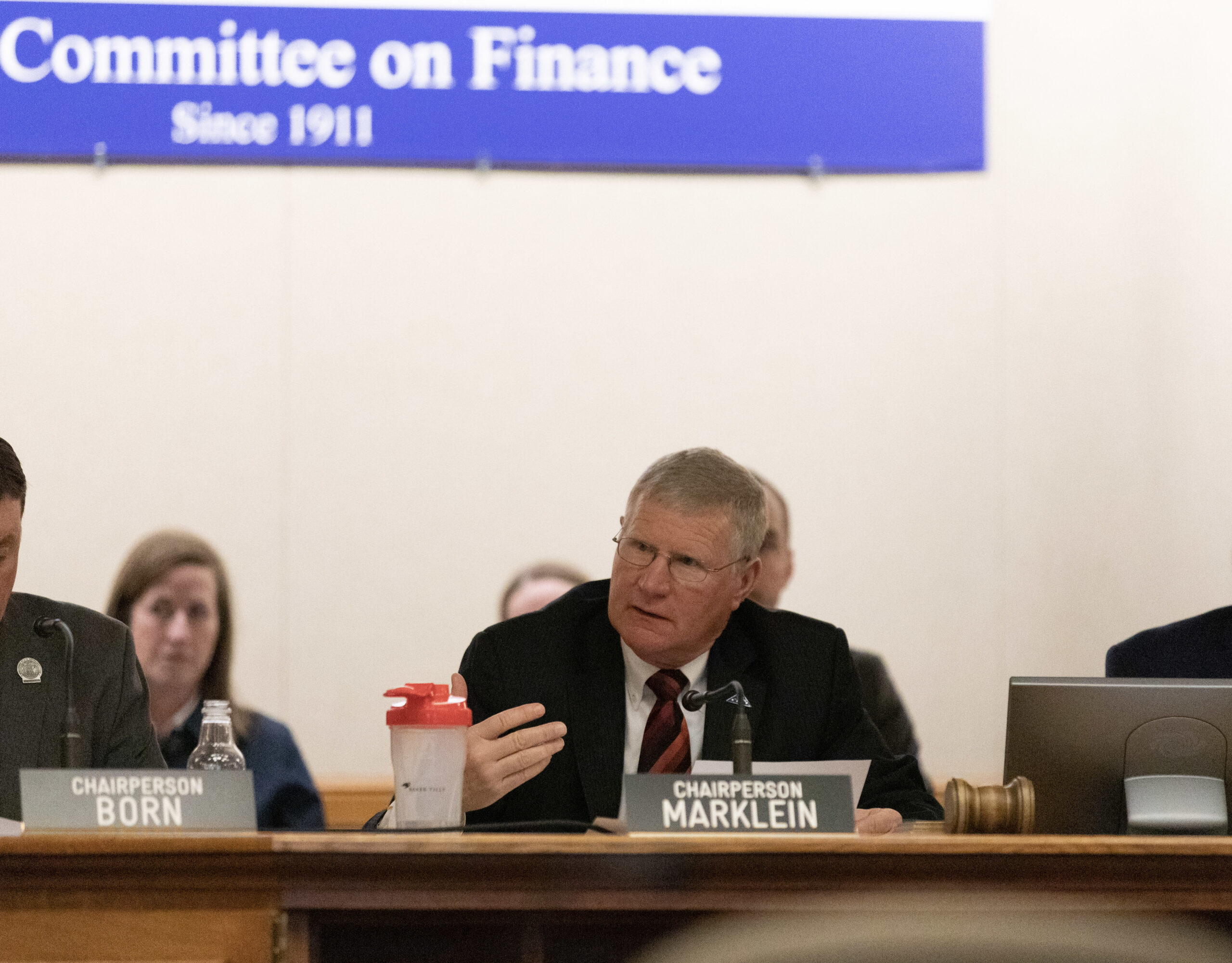As a member of the minority party in the state Legislature, Democratic Rep. Tip McGuire doesn’t have much sway on the budget negotiations that he’s part of on the Joint Finance Committee.
But McGuire, who represents a Kenosha district, told WPR’s “Wisconsin Today” that he doesn’t understand the Republican majority’s priorities. He had particularly harsh criticism for how the GOP is funding education. There are rumors that Republicans are eying a budget cut for the Universities of Wisconsin.
“Ultimately, we’re seeing a complete disregard for the value of education and how it helps generate economic activity in Wisconsin and across the country,” McGuire said. “It feels as though there just seems to be, on the Republican side, a deference to the extremists who want to defund education at all levels.”
News with a little more humanity
WPR’s “Wisconsin Today” newsletter keeps you connected to the state you love without feeling overwhelmed. No paywall. No agenda. No corporate filter.
The Joint Finance Committee is currently rewriting Gov. Tony Evers’ proposal for the two-year spending plan. This week, the committee focused on spending for the state correctional system and education. Legislators have until June 30 to approve a new budget.
“Wisconsin Today” has invited several Republicans on the committee to offer their perspective on the budget. McGuire offered his critique.
The following was edited for clarity and brevity.
Kate Archer Kent: Gov. Tony Evers proposed a significant overhaul of the state’s corrections system. His proposal would cost roughly $500 million. What did the Joint Finance Committee vote on, and how does it compare to what Evers envisions?
Rep. Tip McGuire: Well, honestly, they didn’t do any of the foundational pieces that will allow us to ultimately start closing facilities.
One of the things that we noted yesterday during the committee was that while they don’t want to increase [the number of corrections positions], and they keep saying that there are so many open positions at the Department of Corrections, they also went significantly lower than the governor in paying overtime for our correctional workers, who now have to work a lot longer hours and under difficult circumstances.
And so it really felt like it was a wishcasting moment where they were saying, “We hope that there isn’t very much overtime, even though we aren’t giving you new positions. We hope that we can handle all these problems, all these challenges within corrections,” but they didn’t actually provide a plan to do so.
KAK: So the Joint Finance Committee votes for over $20 million in overtime funding and to increase some staffing at prison facilities, but you’re saying this was a far cry from what the governor would like?
TM: Absolutely, and Gov. Evers put significant investments into overtime because we know that the Department of Corrections continues and our workers there need that support while we’re trying to fill all these open positions and make sure that our facilities are as safe as possible, both for inmates as well as for our workers.
KAK: Last week, a $1.3 billion tax cut plan was approved by the Joint Finance Committee along the party line. Republicans say this is a middle class income tax cut. Why don’t you support it?
TM: The tax cut is juxtaposed directly against the No. 1 issue that people in the state requested from us. What we heard at listening sessions across the state were that school districts, whether they’re rural or urban, whether they had a referendum or didn’t have a referendum, are struggling and that they need investment. And we failed to give the investment that everyone has been asking us for. We failed to do what we need to do with our public schools and give our kids an opportunity to succeed.
I want to point this out: In exchange for that, we got a tax cut. That means a Wisconsin working family, people of working age, would get a maximum of $5 a week. Does that seem like a fair exchange to say, “Look, we’re not going to invest in your kids. We’re not going to invest in the future of the state, but you can get $5 a week back.”
There are a number of different tax plans that we could go with, but instead, we did $5 a week, and for a huge amount of money. And I just feel as though, for working people, that’s both too little and it also comes at a great cost because it was juxtaposed against the investments that we should have made in education, but we didn’t.
KAK: As this committee continues to build this budget blueprint, your next meeting with JFC is Thursday. What part of the agenda is on your mind now? How are you preparing?
TM: I think that every agency is important in the work they do. I know that the Department of Children [and] Families, Department of Justice, some portions of the Department of Health Services, I think the public health portion is going to be up tomorrow. And so certainly, I want to make sure that every Wisconsinite has access to making sure that they can get to work each day by having child care available to them. I want to make sure that people can live in safe and healthy neighborhoods, and so that’s what we’re going to be focusing on.

